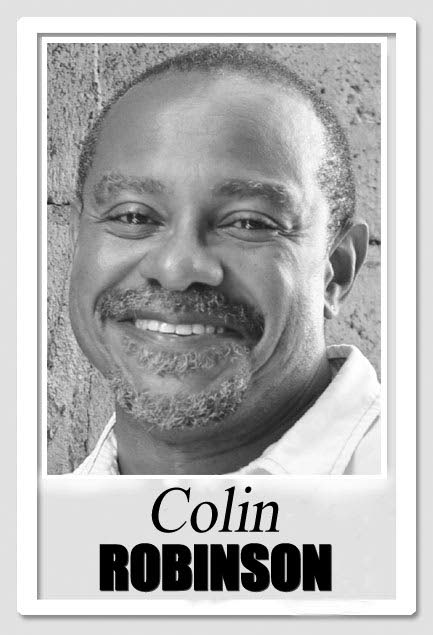Polling with a purpose

Colin Robinson
A Trini wine back on you, and it don’t mean she asking for sex. Assuming that’s what her hips are saying would get you in trouble. So how to listen to what Trinis tell pollsters about their social values on sexuality without getting into similar trouble? What does what they are saying mean?
Market-research company Market Facts & Opinions (2000) Ltd understands this well. In local polling, they argue, a “major concern” is “how can we be certain that the respondents mean what they say, what do their opinions mean.”
Two weeks ago, in the wake of decriminalisation, Pride, and Evangelical moral panic, MFO published a colourful 34-page report on a poll that sought to gauge where public opinion is on same-sex sexuality. MFO joins over half a dozen pollsters who’ve previously sought to measure such attitudes locally. Since 2010, the Latin America Public Opinion Project (co-ordinated by Vanderbilt University) has asked Trinbagonians our attitudes to homosexuals being allowed to hold political office and to marry. In 2015, LAPOP found only 25 per cent of us approved of homosexuals running for political office. But in at least one constituency, that number rose to 53 per cent in the 2010 election, and 68 per cent in another in 2015.
In 2010, 76 per cent of us told the World Values Survey homosexuality could never be justified, and 45 per cent of us wouldn’t want to live next to a homosexual, very close to numbers reported for 2006. WVS’s TT pollster, MORI, also conducted millions of dollars of surveys and focus groups for the People’s Partnership Government, including on homosexuality. In 2012, they told them 82 per cent of us oppose and 13 per cent support same-sex marriage; and 31 per cent of us believe homosexuals should have the same rights as heterosexuals, but 63 per cent disagree.
Patrick Manning’s government polled too. In 2009, UWI’s Ansa McAl Psychological Research Centre told the Ministry of Social Development 69 per cent of us believe homosexuals shouldn’t have equal rights, while 26 per cent thought we should. CADRES, a Barbados-based pollster used in several Eastern Caribbean elections, used the same wording in a 2013 poll sponsored by UNAIDS, and those opposed to equal rights fell to 49 per cent, suggesting a four-year decline.
However, CADRES re-polled another ANSA question, about going liming with someone gay. Those who said they would also dropped: from 47 to 36 per cent.
Prior to polling for the UN, CADRES had raised UK money with the aim of repeating an earlier poll on same-sex issues and doing it as well in Guyana and here. But TT activists had seen Roger Hood and Florence Seemungal’s 2010 work with the Death Penalty Project that showed while 91 per cent of TT (the only remaining Caribbean country with a mandatory death penalty) supports the death penalty, only 26 per cent thinks it should be mandatory. We convinced pollster Peter Wickham what policymakers and advocates needed was nuance. Like MFO, which sought to have its poll validate claims by LGBTI advocates about housing discrimination—and found from 53 per cent of those under 35 to 84 per cent of those over 55 oppose renting to a same-sex couple—we too wanted to test theories we had about public opinion.
We wanted to better understand what underlay people’s complicated opinions about homosexuality and their performances of moral respectability in articulating them.
Like MFO, we found age, education and fundamentalist faith accounted for differences in attitude. Like Nigel Henry’s recent Express-commissioned poll, we also found narrow majorities of support for buggery law retention. Low 80s figures MFO reported opposing legalisation of same-sex relations most other polls have found only for same-sex marriage.
But the MFO poll—in which everyone other than Pentecostals and Muslims found an extramarital affair less acceptable than same-sex relations—supports our inferences about national opinions. Buggery laws (which even Jason Jones’s lawyer said Thursday are unenforced) are moral symbols. Pro-buggery law protest leader Victor Gill made clear he doesn’t want homosexuals jailed; he just wants a law in place to make us outlaws. People disapprove of the behaviour, including on their property; but like adulterers, they don’t believe people should suffer discrimination by others. Both CADRES polls found 15 per cent or fewer people agreed with treating people differently because of sexual orientation. About half in ours said they would re-evaluate their position on sodomy laws if they were proven to increase HIV or harm youth psychologically; 68 per cent already agreed the laws could drive young people to suicide. But 42 per cent felt they reflect moral standards.
MFO’s numbers back up our other sense of what’s going on: People wildly misunderstand what causes homosexual orientation. A third of our sample felt it was vice; another third the outcome of trauma or parenting; but only a fifth that it was natural (and that included birth defects). In MFO’s sample 38 per cent felt orientation is in some way innate. That explains a lot—if it’s nastiness or dysfunction, then moral and legal disapproval is warranted.


Comments
"Polling with a purpose"